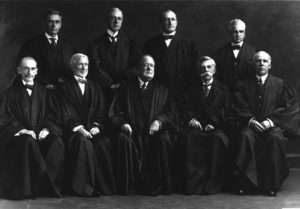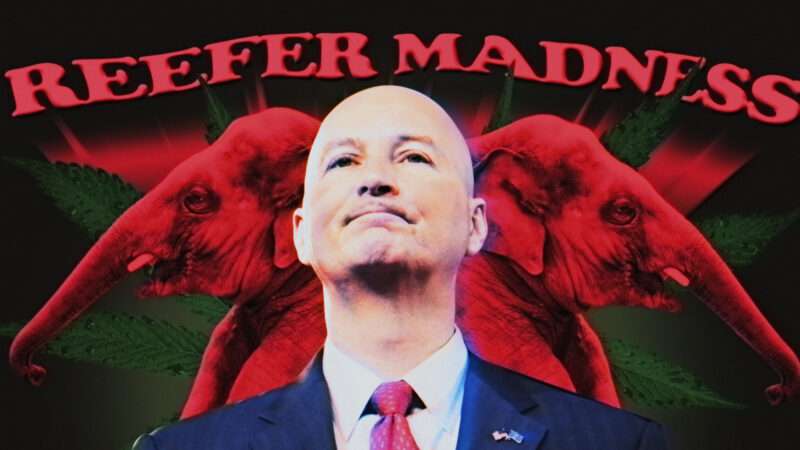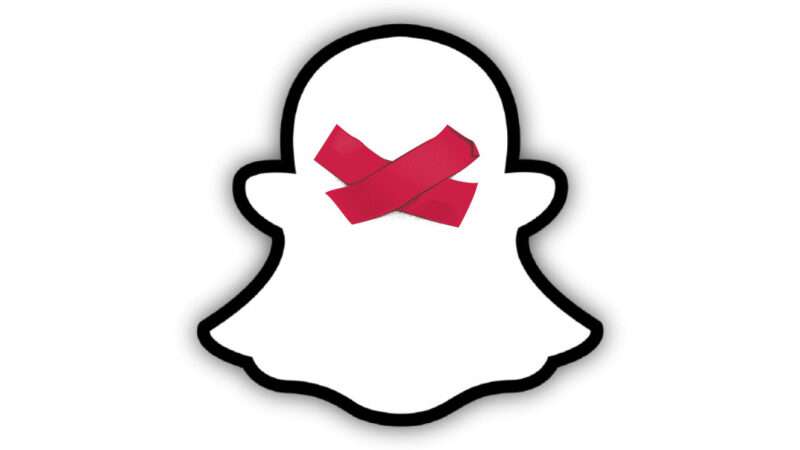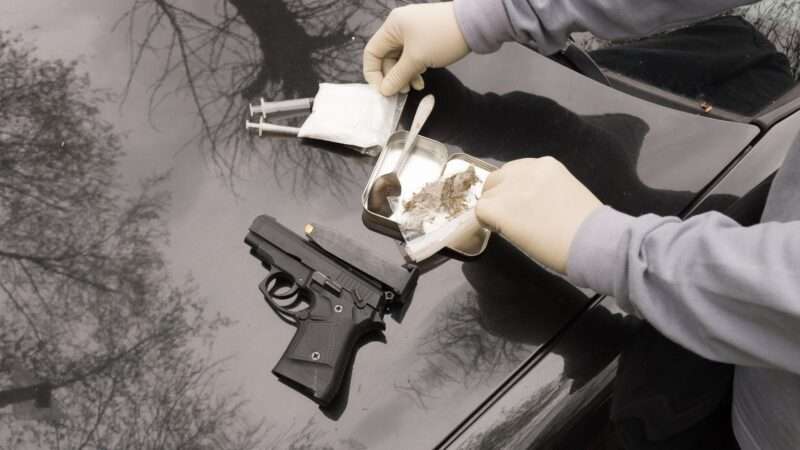4/19/1920: Missouri v. Holland decided.

from Latest – Reason.com https://ift.tt/3dsZVlh
via IFTTT
another site
4/19/1920: Missouri v. Holland decided.

from Latest – Reason.com https://ift.tt/3dsZVlh
via IFTTT

Consider the following. You’re sitting there, minding your own business at the five-and-dime, when a shady character approaches you with promises of a good time. “How good,” you ask? “Really good,” he responds. You’re intrigued. Against your better judgment, you follow him tepidly as he escorts you through town into a dark building that leads to an even darker basement. Down, down, down you descend as the air becomes increasingly shriek- and skunk-ridden. You’ve arrived.
He holds out his hand and in it reveals a promise fulfilled: It’s that smelly green flower, the key to a wild ride. It’s the reefer.
“Why me?” you wonder. You, so unassuming in that blue bow-tie, those pleated khaki pants, those brown brogues! This isn’t supposed to happen to people who wear light blue argyle sweater vests. You have limited time to mull your fate before a group of scantily-clad people slink out from the smoky billows—the screaming now makes sense. You’re suddenly surrounded, mostly by shirtless men in Speedos. How strange, you think.
“Smoke the marijuana,” says the token bottle blonde, her lips red and her lingerie green, the latter a fitting homage to Mary Jane. “Sail the sea of sin.”
You oblige. You trade in that bow-tie for a bare neck, take a deep inhale, and the rest is history: You black out, lose your mind, accidentally kill a pedestrian while driving your car, and grapple with the fact that your dream of becoming a wholesome swing dance instructor is now over. You don a disguise and get out of dodge.
If that story arc sounds familiar, it might be because it’s the plot, loosely rendered, of Reefer Madness—the 1936 propaganda film meant to scare kids away from smoking weed—which was later spoofed into a 2005 musical of the same name. It also might be because Newsmax host Greg Kelly allegedly went through a very similar experience and lived to tell the tale.
“SMOKING WEED (aka GRASS) is NOT a good idea,” he tweeted late last month. “I’ve tried it (back in the day) and it was WORSE than anything that happened to HUNTER BIDEN. I ‘toked up’ with some buddies in Kentucky and woke up 4 days later in Nairobi, Kenya. With no idea what happened. DON’T DO DRUGS.”
Relatable. Was that where our main character went into hiding?
Kelly’s tweet does not appear to be facetious. That leads this writer to two possible conclusions. The first option: He was given something other than weed and hopefully ditched that crowd after returning from his African voyage. The second: He’s drumming up another Reefer Madness-y panic to scare his followers away from weed.
Pot panic is experiencing a sort of resurgence these days, not just with Kelly, but also among somewhat mainstream politicians. Yet this gambit requires a whole lot of imagination, particularly at a time when people are waking up to the deleterious effects posed by the drug war and an overburdened criminal justice system.
“We have a drug problem in Virginia, and legalizing marijuana will only lead to more marijuana overdoses and deaths,” said state Sen. Amanda Chase (R–Amelia County), who is running for the state’s highest office. “Democrats want more marijuana deaths. As your governor I would never allow marijuana to be legalized.”
Exactly which deaths Chase was referencing remains unclear. In May 2019, a coroner in LaPlace, Louisiana, reported that a woman died from too much THC—the psychoactive compound found in the cannabis plant. It was deemed what could have been the first marijuana overdose death in the history of the U.S., even though some experts refuted that as the cause.
“We know from really good survey data that Americans use cannabis products billions of times a year, collectively. Not millions of times, but billions of times a year,” Keith Humphreys, formerly a senior policy adviser at the White House Office of National Drug Control Policy, told Nola.com. He noted that coroners sometimes blame a death on a drug found in the system when there is no other obviously apparent reason. “If the risk of death was one in a million, we would have a couple thousand cannabis overdose deaths a year.”
We don’t. Contrast that with alcohol use, which is responsible for hundreds of deaths per day.
Nebraska Gov. Pete Ricketts, a Republican, upped the ante in March: “If you legalize marijuana, you’re gonna kill your kids,” he said at an event for Smart Approaches to Marijuana (SAM), a group that does not deserve its name. “That’s what the data shows from around the country.” Ricketts may have lifted his data from Reefer Madness.
More clear, however, is that the drug war incentivizes actual violence, with sellers unable to litigate anything in court. Black markets encourage the proliferation of more dangerous drugs being passed off as things they’re not, and give law enforcement the excuse to seize assets from people for no discernible purpose (with little recourse available to those people). Police also possess wide latitude to exercise deadly force against individuals wrapped up in such victimless crimes.
For the skeptic: Remember how well Prohibition—which outlawed a much more statistically lethal substance—worked out? Violent crime in Baltimore decreased 20 percent between March 2020 and March 2021 after the city decriminalized drug use and prostitution. During the same period, crime skyrocketed nationwide.
No one is asking that Chase, Ricketts, and Kelly endorse the morality or prudence of drug use (that’s for us to do). But they should still contend with real information in the real world, as opposed to tugging constituents back to a fictional one complete with more paranoia than you could ever have from lighting up a blunt.
from Latest – Reason.com https://ift.tt/3tvvdhf
via IFTTT
4/19/1920: Missouri v. Holland decided.

from Latest – Reason.com https://ift.tt/3dsZVlh
via IFTTT

Consider the following. You’re sitting there, minding your own business at the five-and-dime, when a shady character approaches you with promises of a good time. “How good,” you ask? “Really good,” he responds. You’re intrigued. Against your better judgment, you follow him tepidly as he escorts you through town into a dark building that leads to an even darker basement. Down, down, down you descend as the air becomes increasingly shriek- and skunk-ridden. You’ve arrived.
He holds out his hand and in it reveals a promise fulfilled: It’s that smelly green flower, the key to a wild ride. It’s the reefer.
“Why me?” you wonder. You, so unassuming in that blue bow-tie, those pleated khaki pants, those brown brogues! This isn’t supposed to happen to people who wear light blue argyle sweater vests. You have limited time to mull your fate before a group of scantily-clad people slink out from the smoky billows—the screaming now makes sense. You’re suddenly surrounded, mostly by shirtless men in Speedos. How strange, you think.
“Smoke the marijuana,” says the token bottle blonde, her lips red and her lingerie green, the latter a fitting homage to Mary Jane. “Sail the sea of sin.”
You oblige. You trade in that bow-tie for a bare neck, take a deep inhale, and the rest is history: You black out, lose your mind, accidentally kill a pedestrian while driving your car, and grapple with the fact that your dream of becoming a wholesome swing dance instructor is now over. You don a disguise and get out of dodge.
If that story arc sounds familiar, it might be because it’s the plot, loosely rendered, of Reefer Madness—the 1936 propaganda film meant to scare kids away from smoking weed—which was later spoofed into a 2005 musical of the same name. It also might be because Newsmax host Greg Kelly allegedly went through a very similar experience and lived to tell the tale.
“SMOKING WEED (aka GRASS) is NOT a good idea,” he tweeted late last month. “I’ve tried it (back in the day) and it was WORSE than anything that happened to HUNTER BIDEN. I ‘toked up’ with some buddies in Kentucky and woke up 4 days later in Nairobi, Kenya. With no idea what happened. DON’T DO DRUGS.”
Relatable. Was that where our main character went into hiding?
Kelly’s tweet does not appear to be facetious. That leads this writer to two possible conclusions. The first option: He was given something other than weed and hopefully ditched that crowd after returning from his African voyage. The second: He’s drumming up another Reefer Madness-y panic to scare his followers away from weed.
Pot panic is experiencing a sort of resurgence these days, not just with Kelly, but also among somewhat mainstream politicians. Yet this gambit requires a whole lot of imagination, particularly at a time when people are waking up to the deleterious effects posed by the drug war and an overburdened criminal justice system.
“We have a drug problem in Virginia, and legalizing marijuana will only lead to more marijuana overdoses and deaths,” said state Sen. Amanda Chase (R–Amelia County), who is running for the state’s highest office. “Democrats want more marijuana deaths. As your governor I would never allow marijuana to be legalized.”
Exactly which deaths Chase was referencing remains unclear. In May 2019, a coroner in LaPlace, Louisiana, reported that a woman died from too much THC—the psychoactive compound found in the cannabis plant. It was deemed what could have been the first marijuana overdose death in the history of the U.S., even though some experts refuted that as the cause.
“We know from really good survey data that Americans use cannabis products billions of times a year, collectively. Not millions of times, but billions of times a year,” Keith Humphreys, formerly a senior policy adviser at the White House Office of National Drug Control Policy, told Nola.com. He noted that coroners sometimes blame a death on a drug found in the system when there is no other obviously apparent reason. “If the risk of death was one in a million, we would have a couple thousand cannabis overdose deaths a year.”
We don’t. Contrast that with alcohol use, which is responsible for hundreds of deaths per day.
Nebraska Gov. Pete Ricketts, a Republican, upped the ante in March: “If you legalize marijuana, you’re gonna kill your kids,” he said at an event for Smart Approaches to Marijuana (SAM), a group that does not deserve its name. “That’s what the data shows from around the country.” Ricketts may have lifted his data from Reefer Madness.
More clear, however, is that the drug war incentivizes actual violence, with sellers unable to litigate anything in court. Black markets encourage the proliferation of more dangerous drugs being passed off as things they’re not, and give law enforcement the excuse to seize assets from people for no discernible purpose (with little recourse available to those people). Police also possess wide latitude to exercise deadly force against individuals wrapped up in such victimless crimes.
For the skeptic: Remember how well Prohibition—which outlawed a much more statistically lethal substance—worked out? Violent crime in Baltimore decreased 20 percent between March 2020 and March 2021 after the city decriminalized drug use and prostitution. During the same period, crime skyrocketed nationwide.
No one is asking that Chase, Ricketts, and Kelly endorse the morality or prudence of drug use (that’s for us to do). But they should still contend with real information in the real world, as opposed to tugging constituents back to a fictional one complete with more paranoia than you could ever have from lighting up a blunt.
from Latest – Reason.com https://ift.tt/3tvvdhf
via IFTTT

In the 1969 case Tinker v. Des Moines Independent Community School District, the U.S. Supreme Court prohibited public school officials from punishing students for exercising their First Amendment rights on school grounds unless the speech at issue “would materially and substantially interfere with the requirements of appropriate discipline and in the operation of the school.” This year, the Court will hear arguments in a new case that asks whether that rule should be interpreted to let school officials punish students for off-campus social media posts.
Mahanoy Area School District v. B.L. originated in 2017, when a high school freshman and junior varsity cheerleader went on Snapchat to complain about her failure to make the varsity cheerleading squad. The student—known by the initials B.L. because she is a minor—posted a picture of herself and one of her friends with their middle fingers raised. The post went up on a Saturday, accompanied by this message: “fuck school fuck softball fuck cheer fuck everything.” That post soon came to the attention of a cheerleading coach, which led to B.L.’s suspension from the squad.
The U.S. Court of Appeals for the 3rd Circuit ruled that the school was prohibited from imposing that sort of punishment for constitutionally protected speech. “Tinker does not apply to off-campus speech—that is, speech that is outside school-owned, -operated, or -supervised channels and that is not reasonably interpreted as bearing the school’s imprimatur,” the appeals court held.
The Mahanoy Area School District wants the Supreme Court to reverse that ruling. Social media and related new technology act “as a megaphone for off-campus speech, ensuring that it reverberates throughout the classroom and commands the school’s attention,” the district’s lawyers told the justices. But thanks to the 3rd Circuit, school officials have been left with no authority “to discipline students for off-campus speech, no matter how obvious it is that the speech is directed at the school and will significantly disrupt the school environment.”
B.L. and her lawyers counter that the 3rd Circuit’s ruling is a straightforward application of the First Amendment. “In a weekend comment in an evanescent Snapchat message,” they told the justices, “B.L. swore in expressing her disappointment at not making the varsity team to her friends. The notion that a school can discipline a student for that kind of spontaneous, non-threatening, non-harassing expression is contrary to our First Amendment tradition, and finds no support in this Court’s student speech cases.”
from Latest – Reason.com https://ift.tt/3dwKNTW
via IFTTT

In the 1969 case Tinker v. Des Moines Independent Community School District, the U.S. Supreme Court prohibited public school officials from punishing students for exercising their First Amendment rights on school grounds unless the speech at issue “would materially and substantially interfere with the requirements of appropriate discipline and in the operation of the school.” This year, the Court will hear arguments in a new case that asks whether that rule should be interpreted to let school officials punish students for off-campus social media posts.
Mahanoy Area School District v. B.L. originated in 2017, when a high school freshman and junior varsity cheerleader went on Snapchat to complain about her failure to make the varsity cheerleading squad. The student—known by the initials B.L. because she is a minor—posted a picture of herself and one of her friends with their middle fingers raised. The post went up on a Saturday, accompanied by this message: “fuck school fuck softball fuck cheer fuck everything.” That post soon came to the attention of a cheerleading coach, which led to B.L.’s suspension from the squad.
The U.S. Court of Appeals for the 3rd Circuit ruled that the school was prohibited from imposing that sort of punishment for constitutionally protected speech. “Tinker does not apply to off-campus speech—that is, speech that is outside school-owned, -operated, or -supervised channels and that is not reasonably interpreted as bearing the school’s imprimatur,” the appeals court held.
The Mahanoy Area School District wants the Supreme Court to reverse that ruling. Social media and related new technology act “as a megaphone for off-campus speech, ensuring that it reverberates throughout the classroom and commands the school’s attention,” the district’s lawyers told the justices. But thanks to the 3rd Circuit, school officials have been left with no authority “to discipline students for off-campus speech, no matter how obvious it is that the speech is directed at the school and will significantly disrupt the school environment.”
B.L. and her lawyers counter that the 3rd Circuit’s ruling is a straightforward application of the First Amendment. “In a weekend comment in an evanescent Snapchat message,” they told the justices, “B.L. swore in expressing her disappointment at not making the varsity team to her friends. The notion that a school can discipline a student for that kind of spontaneous, non-threatening, non-harassing expression is contrary to our First Amendment tradition, and finds no support in this Court’s student speech cases.”
from Latest – Reason.com https://ift.tt/3dwKNTW
via IFTTT

In New York City, Brooklyn prosecutors say they will ask for as many as 90 convictions in cases investigated by police officer Joseph Franco to be thrown out. Prosecutors in the city’s other boroughs are expected to also ask that cases, most involving low-level drug offenses, handled by Franco be thrown out. Franco was charged with perjury and misconduct after investigators in the Manhattan District Attorney’s Office found video that showed several drug buys Franco claimed to witness did not happen or he was not in a position to see them if they did.
from Latest – Reason.com https://ift.tt/2QCDVvi
via IFTTT

In New York City, Brooklyn prosecutors say they will ask for as many as 90 convictions in cases investigated by police officer Joseph Franco to be thrown out. Prosecutors in the city’s other boroughs are expected to also ask that cases, most involving low-level drug offenses, handled by Franco be thrown out. Franco was charged with perjury and misconduct after investigators in the Manhattan District Attorney’s Office found video that showed several drug buys Franco claimed to witness did not happen or he was not in a position to see them if they did.
from Latest – Reason.com https://ift.tt/2QCDVvi
via IFTTT
I’m delighted to report that Prof. Kurt Lash (University of Richmond School of Law) will be guest-blogging this coming week about his new book, The Reconstruction Amendments: The Essential Documents:
Ratified in the years immediately following the American Civil War, the Thirteenth, Fourteenth, and Fifteenth Amendments to the U.S. Constitution—together known as the Reconstruction Amendments—abolished slavery, safeguarded a set of basic national liberties, and expanded the right to vote, respectively. This two-volume work presents the key speeches, debates, and public dialogues that surrounded the adoption of the three amendments, allowing us to more fully experience how they reshaped the nature of American life and freedom.
Volume I outlines a broad historical context for the Reconstruction Amendments and contains materials related to the Thirteenth Amendment, which abolished slavery, while Volume 2 covers the Fourteenth and Fifteenth Amendments on the rights of citizenship and enfranchisement. The documents in this collection encompass a sweeping range of primary sources, from congressional debates to court cases, public speeches to newspaper articles. As a whole, the volumes meticulously depict a significant period of legal change even as they illuminate the ways in which people across the land grappled with the process of constitutional reconstruction. Filling a major gap in the literature on the era, The Reconstruction Amendments will be indispensable for readers in politics, history, and law, as well as anyone seeking a better understanding of the post–Civil War basis of American constitutional democracy.
I much look forward to Prof. Lash’s posts!
from Latest – Reason.com https://ift.tt/3ecC9td
via IFTTT
I’m delighted to report that Prof. Kurt Lash (University of Richmond School of Law) will be guest-blogging this coming week about his new book, The Reconstruction Amendments: The Essential Documents:
Ratified in the years immediately following the American Civil War, the Thirteenth, Fourteenth, and Fifteenth Amendments to the U.S. Constitution—together known as the Reconstruction Amendments—abolished slavery, safeguarded a set of basic national liberties, and expanded the right to vote, respectively. This two-volume work presents the key speeches, debates, and public dialogues that surrounded the adoption of the three amendments, allowing us to more fully experience how they reshaped the nature of American life and freedom.
Volume I outlines a broad historical context for the Reconstruction Amendments and contains materials related to the Thirteenth Amendment, which abolished slavery, while Volume 2 covers the Fourteenth and Fifteenth Amendments on the rights of citizenship and enfranchisement. The documents in this collection encompass a sweeping range of primary sources, from congressional debates to court cases, public speeches to newspaper articles. As a whole, the volumes meticulously depict a significant period of legal change even as they illuminate the ways in which people across the land grappled with the process of constitutional reconstruction. Filling a major gap in the literature on the era, The Reconstruction Amendments will be indispensable for readers in politics, history, and law, as well as anyone seeking a better understanding of the post–Civil War basis of American constitutional democracy.
I much look forward to Prof. Lash’s posts!
from Latest – Reason.com https://ift.tt/3ecC9td
via IFTTT